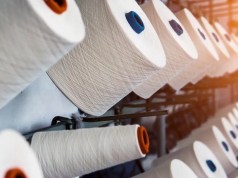When you visit https://surokkha.gov.bd/, a website register for the Covid-19 vaccination in Bangladesh, you will find some categories, for instance, migrant workers, medical students, residential students of public universities, and law enforcers, who will receive vaccines on a priority basis.
Alas! No category is present for readymade garment (RMG) workers under the vaccination program on a priority basis. It is widely recognized that RMG is the industry that has been making a crucial contribution to rebuilding Bangladesh and our economy.
About 4 million workers are engaged in production amid the surge of Covid-19 infection and death in the country, even during the days of strict restrictions on movement. We agree that all the export-oriented factories need to continue their productions, but why is it that only the RMG workers’ production is given priority, not the workers themselves?
Bangladesh began the administration of Covid-19 vaccines on January 27, 2021 while mass vaccination started on February 7, 2021. According to media reports, as of July 14, Bangladesh reached the landmark of 1 crore Covid-19 vaccination registrations.
However, according to a joint survey by the South Asian Network on Economic Modeling (SANEM) and Microfinance Opportunities (MFO), Bangladesh’s apparel workers have little access to adequate information related to Covid-19 immunization. The survey found that only 22% of the workers, who wished to be vaccinated, had information on how to gain access to jabs.
Isn’t it a matter of deep concern? While workers aged 35 or more can register to get vaccinated, only 2% of the surveyed workers had received the Covid-19 vaccine prior to the survey conducted. You need to keep in mind that the inability to ensure access to Covid-19 vaccines will put millions of garment workers at risk because they are employed in one of our most crucial industries.
Garment manufacturers have reiterated their demand for stimulus packages from the government several times. Every time the government imposes a lockdown, manufacturers and exporters take part in a joint press conference to urge the government to keep the factories open. And every time the government declared stimulus packages, they called for packages to avoid fall out. Are they equally vocal to bring RMG workers under the vaccination program on a priority basis?
It is often said by the factory owners: “Workers come first and they are our utmost priority.” But the bitter truth is that workers only come first when they are used in the production process. But in the case of workers’ advantages, workers are never on the priority list. Do they think only providing free masks for the workers can protect them from the coronavirus?
Keeping RMG workers out of the vaccination program presents us with the unfortunate and grim realities in our society. This can be explained by Karl Marx’s theory of class struggle. We can consider RMG workers as the proletariat, forced to accept meager wages in return for operating the means of production, and the RMG factory owners as the bourgeoisie, the capitalists who own the means of production. It is the picture of the widening divide between the privileged and the poor.
It has been said time and time again that vaccination for all citizens is the only viable solution to ending the Covid-19 pandemic.
Safety measures such as lockdowns are of course essential, but temporal measures cannot be seen as solutions.
Rima Islam and Md Jahid Hashan are students of Political Science, University of Dhaka.
















